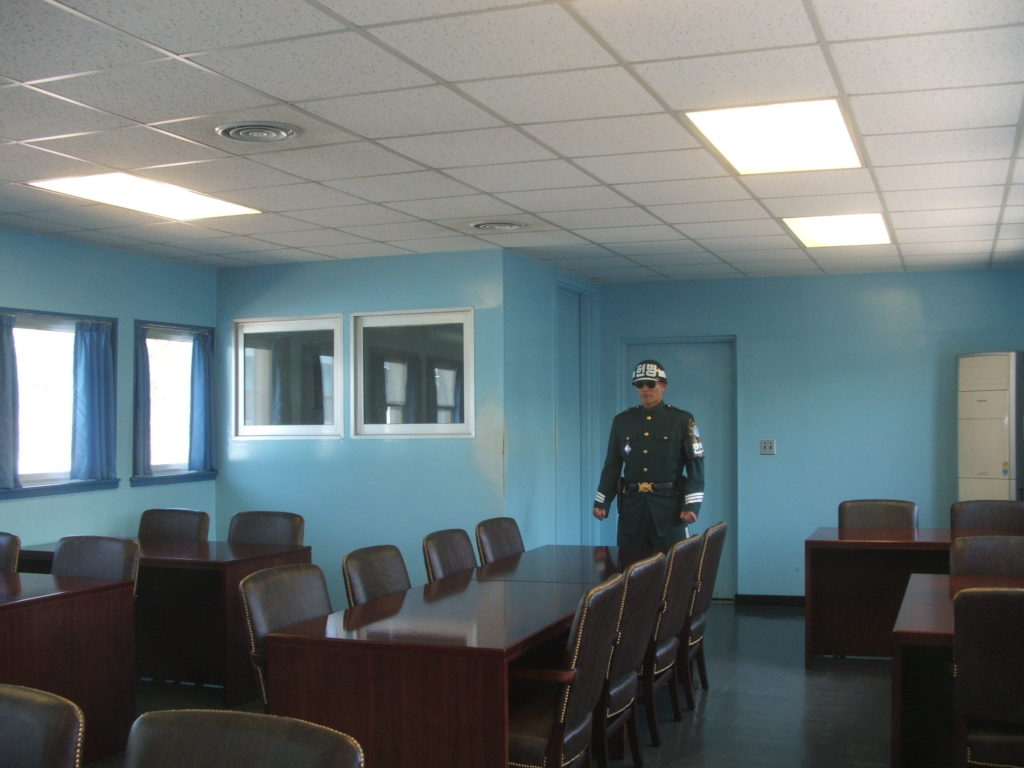The Peninsula
North Korea Cancels Family Visits and Tries to Play the Blame Game

By Nicholas Hamisevicz
In their first two years, Kim Jong-un and the collective leadership in North Korea have found various ways to kill the momentum of positive interaction with North Korea’s neighbors. While Pyongyang has given with one hand with the recent return of its workers to the Kaesong Industrial Complex (KIC), it has taken away with the other by postponing the family reunions that were set to take place this week. If North Korea is attempting to regain some leverage in inter-Korean talks by stalling on family visits, the South Korean government could again face a difficult decision on whether trust can be built up with North Korea.
Pyongyang is attempting to blame the current impasse on Seoul. In a September 21st statement, North Korea’s Committee for the Peaceful Reunification of Fatherland (CPRF) said that inter-Korean relations were “inching close to a serious crisis” because of South Korea. The statement blamed the postponement on the South Korean government for suggesting that its principled stance toward North Korea was working and the arrest of the leader of a minor political party leader accused of ties with the North.
In many ways, the Park Geun-hye administration likely believes its principled stance has worked well so far with North Korea. North Korea unilaterally pulled its workers out of Kaesong, but ultimately signaled that it would return them after Seoul made moves that indicated that it was willing to shut the complex down for good. South Korea also got a new management structure with a joint commission to oversee the KIC, which the Park Geun-hye administration argues will help reduce the possibility of North Korea unilaterally shutting down the complex again. With these wins, it is likely the Park administration will stick to similar tactics and efforts it used for Kaesong when dealing with the cancellation of family visits.
For family visits, the South Korean government’s stance so far has been to undertake family visits first, and then start working with North Korea about opening up tourism at Mount Kumgang again. North Korea would like to have both of these projects occurring simultaneously. By cancelling the family visits, North Korea was likely trying to regain two important elements for the regime: prestige and cash. As the statement from the CPRF suggests, North Korean leadership probably didn’t enjoy Park Geun-hye getting praise for Kaesong and anticipated that the family visits would be another boost to her support as well.
Furthermore, the Park Geun-hye administration has been clear that it would not compensate North Korea for the family visits as had happened before. North Korea is also not receiving the full amount of money from Kaesong as the complex is still in the process of getting back to full operation. Major issues remain in getting inter-Korea cooperation on Mt. Kumgang; thus, North Korea can’t count on money from that project anytime soon. Consequently, the desire for North Korea to regain the prestige of pushing inter-Korea relations and gaining more money for the regime were likely factors of North Korea’s cancellation of the visits.
The indefinite postponement of the visits could be an attempt by North Korea to build domestic pressure on Park Geun-hye to be more accommodating to the North Korean position. During the Kaesong suspension, she was only a few months into her presidency, and in addition to pulling its workers from the complex, North Korea increased its threatening rhetoric toward South Korea. Currently, the rhetoric from North Korea is less heated. Moreover, Park Geun-hye has some domestic issues that impact her overall political capital and capabilities. Concerns with her pension proposal for seniors, scandals with the National Intelligence Service of South Korea, and the arrest of United Progressive Party lawmaker Lee Seok-Ki all contribute to the pressures and difficulties of presidential leadership. The Park Geun-hye administration will have to convince the South Korean public that North Korea postponed the visits for unimportant reasons and that South Korea’s negotiation efforts provide their country with better overall security, interaction with North Korea, and groundwork for future reunification. Although the family visits may seem like a small endeavor, handling the situation correctly could give Park Geun-hye even more support of her inter-Korea policies and provide more political room to deal with domestic issues.
By indefinitely postponing the visits, North Korea is looking for ways to increase its leverage in inter-Korean relations. North Korea is likely hoping that Park Geun-hye has less political capital because of domestic issues and that recent inter-Korea cooperation over Kaesong will lead the South Korean public to clamor for more interaction with their northern neighbors. However, because of its success so far, it doesn’t appear that the Park Geun-hye administration will diverge greatly from its previous tactics. South Korea seems to have navigated well through the Kaesong negotiations, so the postponement of family visits could follow a similar pattern. However, if the family visits are stalled and President Park doesn’t want to talk about Mt. Kumgang, will Kaesong and humanitarian aid be enough to build trust between the two Koreas?
Nicholas Hamisevicz is the Director of Research and Academic Affairs for the Korea Economic Institute of America. The views expressed here are his own.
Photo from cfarivar’s photostream on flickr Creative Commons.
